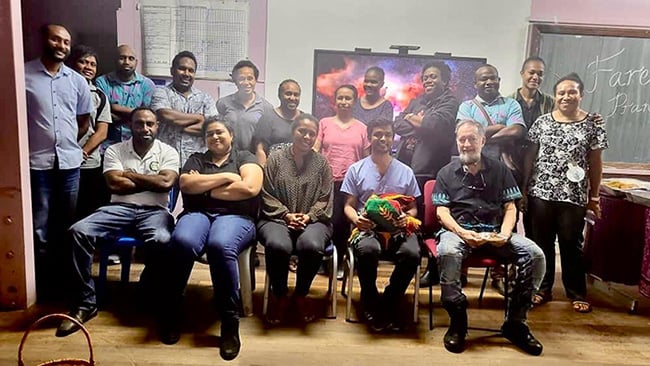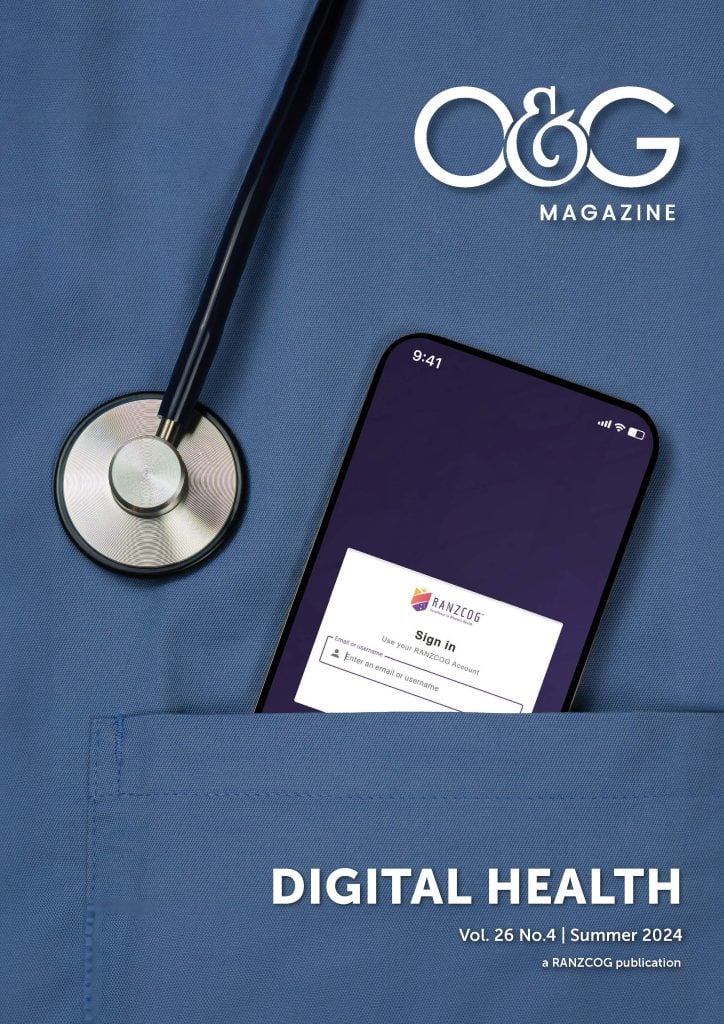The mainlands of Australia and Papua New Guinea are separated by only 150 kilometres, but the experiences of patients, families and healthcare workers at times are worlds apart.
As an obstetrics and gynaecology registrar, I joined a team of local doctors and midwives at Port Moresby General Hospital (PMGH) on a volunteer assignment with the Australian Volunteers Program, an Australian Government-funded initiative that supports global volunteering and locally led change. At the country’s largest hospital, this small group of staff managed up to 50 deliveries a day and 15,000 births every year. The focus of the assignment was on capacity strengthening within the maternity department, which sees high patient loads in a low-resource setting.
Capacity strengthening activities primarily centred on education, including leading journal clubs and tutorials, bedside teaching for medical students and providing research support to local registrars. Clinical work rotating through the birthing unit, theatres and antenatal wards provided an opportunity to practise my Tok Pisin language skills—much to the amusement of staff and patients.

Dr Praneel Kumar with Port Moresby General Hospital’s O&G team, Port Moresby, PNG
During clinical work, the pressures faced by healthcare workers and facilities became evident. Local consultants and registrars were generous in sharing their skills with breech vaginal deliveries and complex open gynaecological surgeries, despite significant challenges. A small number of doctors attended to well over 100 women seeking care in the hospital’s antenatal and gynaecology clinics each day. Midwives often tended to women delivering on the waiting room floor due to a shortage of beds.
The fortitude and resilience of the healthcare workers in this environment was inspiring.”
Poverty, combined with systemic challenges, all too often led to stillbirths of unclear cause, as well as premature deaths of young pregnant women with complex medical comorbidities and middle-aged women from preventable cancers.
The fortitude and resilience of the healthcare workers in this environment was inspiring. The maternity department had a strong culture of quality improvement, with regular consultant teaching for registrars, daily tutorials for medical students and monthly maternal and perinatal mortality reviews.
There was an emphasis on active management of labour with diligent use of partograms and clinical protocols. The local registrars could command any emergency with proficiency, despite limitations in resources.
The dedication and skills of healthcare workers highlighted the contextual challenges they faced. Limited primary care and prevention services led to many unplanned pregnancies in severely anaemic women. A growing urban population in Port Moresby placed increased demand on services, leading to power cuts, housing shortages and unemployment. These social determinants of health further contributed to poor health outcomes.
Given the commitment of the Australian Volunteers Program to sustainable development, I would encourage any registrar who has the opportunity, to undertake one of their assignments as part of their training. This assignment has facilitated my engagement with public health practice in a low-resource setting, which has been a fulfilling experience. It has underscored the importance of addressing the social determinants of health through cross-sector collaboration with education, employment and housing to implement durable change to maternal health outcomes.
Stepping outside my comfort zone has been an invaluable training experience, helping me build lasting relationships with local clinicians in PNG. These relationships over time, can lead to further capacity-building partnerships, bridging the divide in health inequity between our different worlds.
I would like to acknowledge the Australian Volunteers Program staff in Australia and PNG, RANZCOG Women’s Health Foundation and Global Health Committee, Professor Glen Mola, and all the local healthcare staff, students and patients in PMGH for their support and generosity.





Leave a Reply